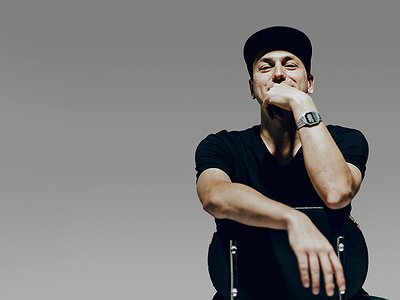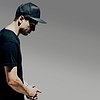Part 1
Name: Dosem
Nationality: Spanish
Occupation: DJ / Producer
Labels: Sino, Suara, Tronic
When did you start DJing and what were your early influences and inspirations?
I started DJing around 12 years ago. By that time, I had already started producing my own music. The first software I used to do music was called Tracker, and some years later, I started to use Reason and Logic. In the beginning, I wanted to be a video game creator and intended to use my own music for these games. I stopped doing that for a while and then came back to music during my college years. I was going to the clubs and listening to the DJs and that made me go back home and produce some stuff on my own. I just wanted to try those tracks live and test them in front of a crowd. So I started organising a few parties with some friends in my hometown Girona. I'd hone my skills as a DJ there and through that, I got a residency at a small club in town.
For most artists, originality is first preceded by a phase of learning and, often, emulating others. What was this like for you? How would you describe your own development as an artist and the transition towards your own style?
I'd always been listening to electronic music, to many different styles of music, including RnB, Hip-Hop-style, some other artists that were using a lot sampling and electronic sounds. UK stuff like Orbital, Underworld and William Orbit as well. Vangelis of course, Mike Oldfield… Then, when I was 18 or 19 years old, I flew to Ibiza and discovered the club scene there. At college, I started going to the clubs in Barcelona, listening to people like Sideral and Angel Molina… that period was very influential. There were lots of local artists, but also international ones, we had Alexander Kowalski, Jeff Mills, Richie Hawtin, etc. And that's the time I started appreciating music thought for the dancefloor. So at that time, I started to produce more techno and house, Kanzleramt was one of my biggest influences. But I also liked Luomo productions a lot. His albums “Vocal City” and “Present Lover” were fantastic. Also his other aka Vladislav Delay. What drew me to Kanzleramt is that they were very melodic and funky as well. Soulful stuff.
Artists like Alexander Kowalski, Laurent Garnier or Ken Ishii were playing soulful music, very melodic, with this energy from the groove and from the rhythm. Technique is also important to me. But when I listen to music, I don’t mind if it’s not technically perfect… If it has an intention, a personality, it catches me. You can feel when the Dj is really feeling what he plays, that’s the most important. And that's what I'm also looking for when I'm producing or playing out myself. I try to produce and play the music I would love to dance to in a club.
What were the main challenges when you started DJing?
When I started to play Dj Sets, the main challenge was to achieve the kind of sound I had in my mind. And considering that at that time I had a beginner mixing skills, that wasn't easy. In my mind, I was very clear about what I wanted to achieve in musical terms. Still, my intentions towards the music are the same that I have now. If you listen to my sets from the year 2006, the core concept and the intention is very similar.
What was your very first set-up?
It was at my home, just a mixer, a soundcard and a laptop. I was mixing with one of the first versions of Traktor and then tried Ableton Live. It was totally a small budget home studio just to learn the basics and experiment. But then I had the chance to play at a club as a resident and I had access to 2 CD-Js 200 and a Pioneer 500, if I remember well. From that point, I moved again to Ableton Live, because I thought it was very interesting what they were doing with the software. And I got more interested in playing more than my own stuff since I was also using Ableton to produce. And then at some point, I started to do both, doing both DJ-sets and live performances. For the past few years, I've been concentrating on the DJ-sets, because I feel I can play longer and have more options. I also enjoy it much more.
Do you think it helped that you had to learn the trade this way? Today, you can potentially pick up DJing in a day …
The good thing about beatmatching is that you have to feel the beat. This changes the way you play and the way you produce music. If you start with Traktor these days, you have so many possibilities, so it may be better to start in a simple way and then move forward from there. But it depends on how you think you can do best your work. Traktor is really good to play with many layers of sounds, and depending on the music genre that can make a lot of sense, it’s almost a Live performance with loops and stems, similar to Ableton … But in my case, CD-Js are my thing. I like to feel the beat, touch the tempo, let the track breath, let it sound the way it was produced…
So beatmatching is not so much about getting two tracks in sync, but about something deeper.
At least for me, it is. You have to feel the rhythm inside. And your brain has to adapt to that rhythm. I remember when I learned to beatmatch in the beginning, it changed the way I produced music as well. I would go to the club and beatmatch two of my own pieces and then, afterwards, go back into the studio and change their structure.
How do you see the relationship between the tools you're using and the creative results – in which way do certain tools suggest certain approaches, in which way do they limit and/or expand your own creativity? Do you believe in the idea of progress in DJing from a technological perspective?
If you're tweaking the sounds and listening to the sounds this machine is making, then that sometimes gives you an idea. At the same time, of course, you have some idea about what it is that you want to do as well. So it's bidirectional. For example, I'll be experimenting in my studio and listening to a sound from a plugin. Sometimes, I'll develop this sound into a complete composition. And sometimes it's the opposite – I'll go into the studio and with my experience and the other synths I have, I'll have a very clear idea in my mind what I want to explain and I'll try to find the tools that match this idea. Technology should be used to offer new creative possibilities and I’m sure there’s plenty of room for that. But it also depends on the effort from the artist to take out the most of what we already have.
For example I remember listening to 2-decks vinyl sets and watching the Dj play the entire record to let it breath ... and to people like Jeff Mills doing amazing stuff with 3 decks, a TR-909, etc. (His Exhibitionist DVD is a clear example of this approach). So it depends on the DJ, there is no absolute truth.
[Read our feature on the Roland TR-909]
Now, there's the Stems format from NI and it is very similar to DJs playing with Ableton Live. You can use parts of a track and create more complex mixes, like a big megamix. Similar to what Richie Hawtin did with his Transitions mix or Joris Voorn with his Balance Mix CD … it requires a lot of pre-work in the studio, but if you use it well, it can be really interesting.
Could you take me through the process of preparing for one of your gigs, please? How do you select the tracks you like to play, how do you prepare and how do you decide on the opening phase of your set?
I will have unreleased promos, I will have my own productions and a few tracks of my own that are maybe just tests – so I'll quickly render them or make a quick bounce and put them in the folder. And then, of course, I eventually check online shops. I like to be as close as I can with the people sending me the music. I like to select the tracks myself, because I know very well what I want to play, what I want to express and what I want to tell to the audience. I always listen to the promos myself and I also give the feedback myself. Also sometimes, there'll be tracks I'll hear, where I just like certain parts of the track I like, the break or the melody and I just take that part and make an edit for my sets. These days, I'll put everything in one folder and if I'm playing at a venue or festival I've played before, I'll know what the mood and sound system are like and what a track will sound like, more or less, there. So I can predict a little bit more and prepare some special tracks for that event. But in the end, it doesn't make sense at all … I'll arrive there, play the first two or three tracks and then realise I want to change the mood and play other stuff. That's why I try to always carry with me all my music in my USB.






